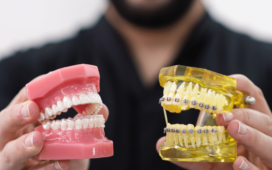Impotence (mati pucuk) or commonly known as erectile dysfunction is a men’s sexual health disorder characterized by inability to get an erection from sexual desires or maintain a satisfactory erection during a sexual intercourse. This disorder has become drastically common among men in this millennial era due to multiple risk factors which will be discussed in this article, continue reading to know more about it.
Who is at risk of getting impotence?
Basically, there are two main causes of impotence namely physical cause and psychological cause. Physical causes are mainly medical comorbidities, trauma and imbalance of hormones while psychological causes cover disorders like anxiety and depression. Here are some risk factors that might lead you to have impotence.
1. Hypertension
Before understanding how hypertension can cause impotence, you have to first understand how an erection happens under normal circumstances. When you are exposed to sexual stimuli or desires, your body will start releasing chemicals that are responsible for vessel dilatation. The vessels then start to be dilated, engorge and bigger pushing all soft tissue and smaller capillaries which eventually prevents the flow back of blood leading to maintenance of erection.
However in conditions like hypertension, the high blood pressure has an ability to damage the vessel wall leading to unresponsive to the chemicals released by the body. Keep your hypertension under control with proper lifestyle modifications and antihypertensives prescribed by doctors. The same principle applies for patients with high blood cholesterol which can form plaques in your blood vessels hence damaging the wall.
2. Diabetes
Diabetes simply means having high levels of glucose in your blood. Diabetes has several mechanisms for damaging small blood vessels like the one supplying the penis. One of it is by producing advanced glycated products and via the fructose sorbitol pathway. It is common to have impotence when your diabetes is not controlled well. Maintain a well balanced diet and seek proper treatment for your diabetes.
3. Smoking
Thousands of chemicals in the smoke might increase the damage to the blood vessels of your penis. Chronic smokers are reported to suffer from impotence more than non smokers. Reduce your quantity of smoking or the best will be registering yourself for a quit smoking clinic to improve the outcome.
4. Trauma
Having trauma such as vertebral, pelvic and perineal trauma increases your risk of getting impotence. This is because your lower motor neurons arise from the spinal cord and go all the way to your penis. The same condition applies for multiple sclerosis patients where you have damage to the neurons.
5. Psychological disorders
This condition has become more common nowadays as compared to physical causes due to more stress, workloads and burden around us day by day. In fact, impotence has been classified as a men sexual health disorder in the Diagnostic and Statistical Manual of Mental Disorders together with premature ejaculation.
There are mainly 2 mood disorders associated with erectile dysfunction, depression and anxiety. These two disorders will reduce your confidence level, make you more anxious in performances, and cause loss of interest in things you find stimulating and interesting previously.
According to DSM5, diagnosis of erectile dysfunction can be made when patient fulfills the criteria as below;
- At least one of three of these symptoms has been experienced by patients on almost all or all (which is about 75 to 100%) during sexual activity
- Marked difficulty in getting an erection during sexual intercourse
- Marked difficulty in maintaining an erection during a sexual activity
- Marked decrease in the rigidity of penis during sexual intercourse.
- The symptoms in criterion A should at least last for 6 months duration



















